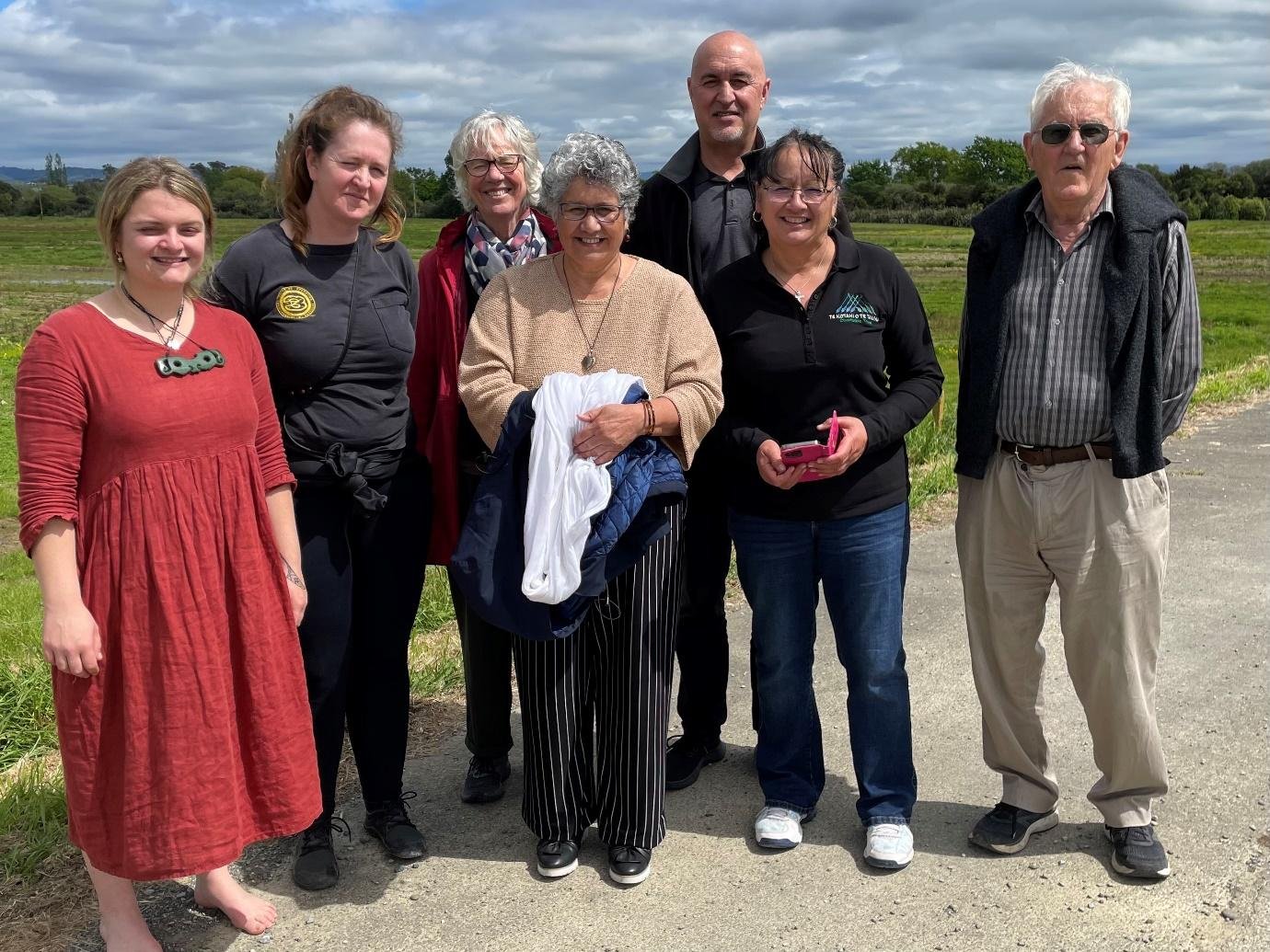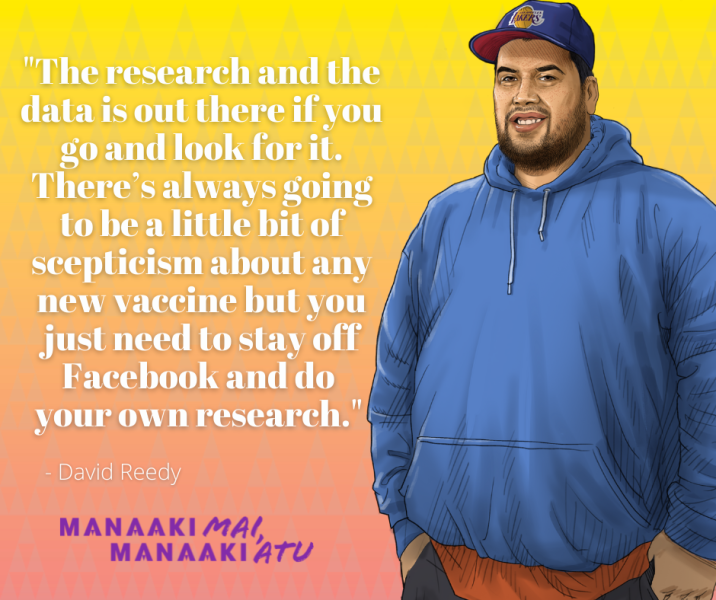LOGIN:
When Caitlin Sowden reached the banks of the Waimea River, she discarded her socks and shoes and plunged into the cool waters. She felt the call; that led her to the river, to immerse herself; to soothe the soul. It reminds me that the best rongoa in life does not come in a bottle – sunshine, air, water, warmth are just as healing; rest and respite kiss the soul in ways that energise and vitalise; nurture and sustain. This week, Caitlin and I joined Dave Johnson, and Vicky Thorne from Ngati Kuia; with Dr Lorr Eade, in a site visit to the lands at Appleby in Nelson. We were hosted by Dave Wickham, Mary-Ellen and Josephine O’Connor, as they showed us through the beautiful lands that are connected through to Pearl Creek.
It was a truly beautiful day; where the birds joined in on our karakia; where pukeho frolicked in the fields; where the sun-glistened waters mesmerised us into a period of reflection. In Ngati Kuia’s landmark research, He Maunga Pakohe Rautaki Hauora, it says “The type of interaction whānau have with the environment has been identified consistently in existing research as crucial for hauora. This has been attributed to the close relationship Māori have to the environment, as well as the impacts the environment can have on physical hauora, such as kai-gathering and clean waterways.”
"This has been attributed to the close relationship Māori have to the environment, as well as the impacts the environment can have on physical hauora, such as kai-gathering and clean waterways."

Over the past year, whānau from Tuahiwi have been on a fitness journey through Te Haa Oranga o Tuahiwi. With the motivation of their amazing trainer Mereana Brennan, some whānau have been training for a 10km race at the Aoraki Marathon, which was due to take place on Saturday 2 October. Unfortunately, the race was cancelled due to COVID-19 restrictions, but the rōpū decided to make use of the accommodation they had booked and organise a whānau trip to enhance hauora and whanaungatanga – and they even found a way to live up to their fitness aspirations by completing the Hooker Valley Track!
During lockdown we had Kiri Williams and Monica Lei join the team to create a referral system for whānau who had requested the support of a Whānau Ora Navigator. In the two weeks of Alert Level 4, 1,000 applications met the criteria, and of those, 240 have still expressed an interest.
We also stood up our Kai Hub, allowing our Navigators to use a four-question form to order kai for their whānau to be picked up within a couple of days.
Donations from wholesalers, The Food Network and local businesses made this possible, as well as rotating the mahi including packing the boxes and deliveries between the NavNation.
Over 500 kai bpacks have been made to date, and over 80 cubic metres of firewood has been sourced.
This work continues, and just this week our amazing Navengers were in Temuka, making a delivery of kai to Arowhenua Whānau Services to distribute to their whānau.
This week we received an incredible milestone report from Te Whare Puāwai o Tokomairaro, whose work in Milton continues despite some immense personal challenges facing their team.
The team have now had 15 rangatahi participate in three two-day barbering wānanga. Three facilitators shared their life journeys and the self-determination that gained them the lifeskills that brought them to where they are today, from stories of addiction and homelessness to the recovery that led to them co-owning a barbershop.
This is in addition to ongoing hunting wānanga – small sessions with rangatahi tāne and local kaumātua and mentors. The team have seen a significant change in their attitudes, decision-making skills and resilience, and parents and school teachers are noticing a difference. Listening, reading, whakapapa of the land, teamwork, mindfulness, fitness, how to catch, carry and process their kai.
Feedback from rangatahi participants:
“Since going hunting, I have increased my fitness, I’m making new friends and best of all I’m learning how to provide kai to my whānau.”
This week our campaign continues with the story of David Reedy, a Community Support Worker at Te Kāika in Ōtepoti.
When the vaccine first came out, I wasn’t automatically sure that I was going to get it. Like everyone else, I was apprehensive about the speed of the development and roll out. I like to do my own research on anything, that’s just a habit I have, so the first thing I did was read up on it. Then I talked to other people about it, including the nurses at work but also people who don’t want to get it. I listened to why they didn’t want it and thought to myself – is that a valid enough reason for me not to get it?
Most people were just nervous about not knowing what’s inside the vaccine and what it does, or they’ve been spending too much time on Facebook and getting into all the conspiracy theories. But you can find out the ingredients – the research and the data is out there if you go and look for it. There’s always going to be a little bit of scepticism about any new vaccine but you just need to stay off Facebook and do your own research.
Eventually, I figured out that I had to take myself out of the equation and think about it in terms of the whānau that I work with and the wider community. I’m a Community Support Worker for Te Kāika and I work with some vulnerable people. Because Māori are in the higher risk category for most health statistics, the more we can do to mitigate those factors the better it is in the long run, and vaccination is part of that.
But there is a big distrust in the health system by many Māori and simply telling them to get vaccinated isn’t really working. By getting vaccinated myself and working alongside whānau I can be a tangible resource for them and help guide them through the process, whether that’s helping them access any information they need or bridging the gap between them and health engagement.
At the end of the day, it’s your choice. As long as you’re making the decision for valid reasons, and it’s an informed decision. Talk to people who have been vaccinated. Do your research, get some proper information. Just think about others, I guess. That ended up being the main reason for me – I was doing it for my family and others who I work with.
